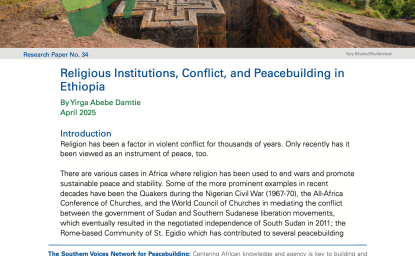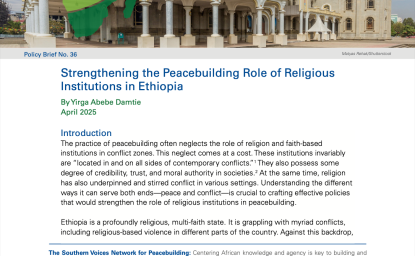Preventing the Next Wave of Conflict
This new report, Preventing the Next Wave of Conflict: Understanding Non-Traditional Threats to Global Stability, released by the Center's Conflict Prevention Project, is an analysis of the non-traditional threats to national security including economic and social disparities, failures in political and economic governance, demographic shifts, scarcity of natural resources, environmental degradation, and health crises. The report is available here for download.




